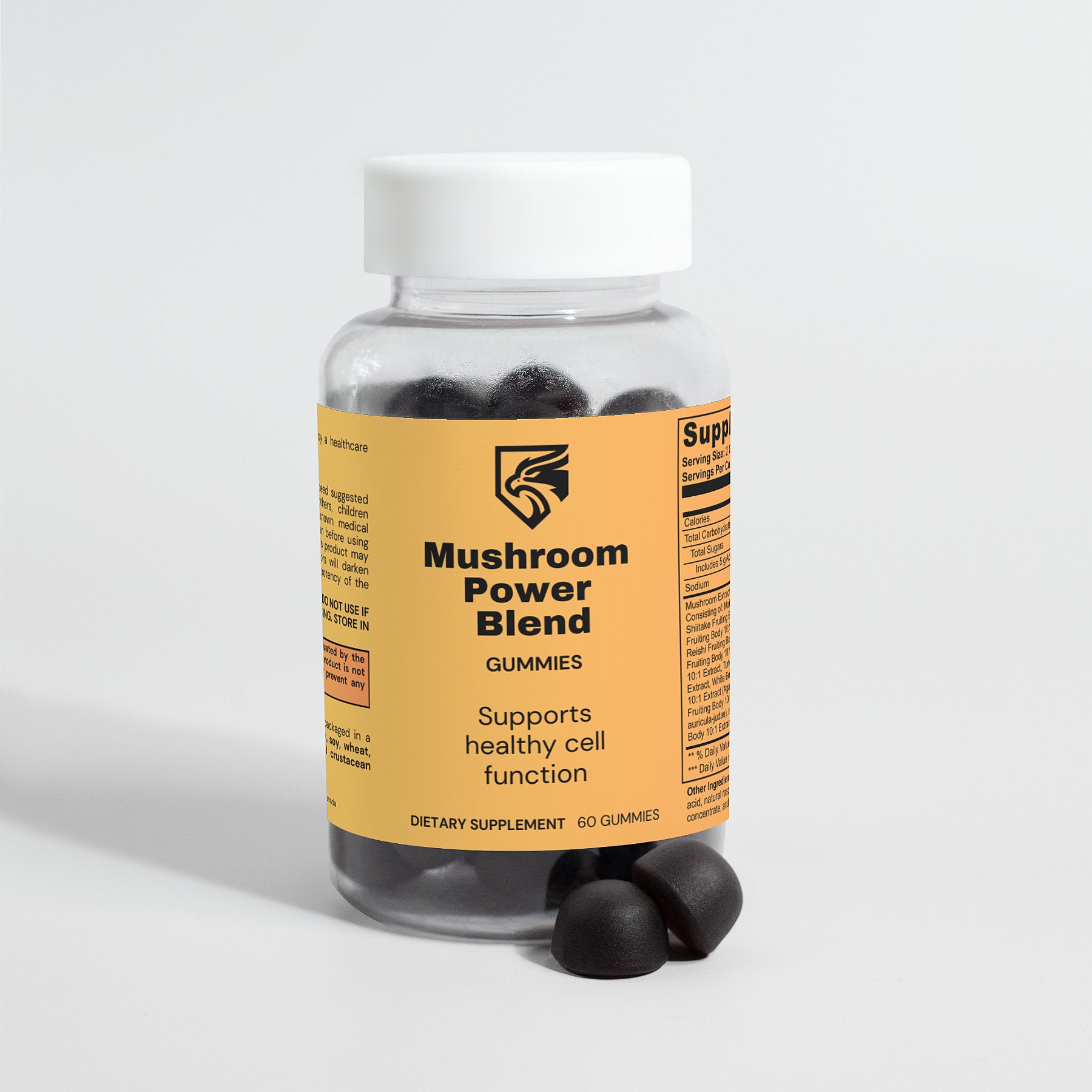Your brain is the powerhouse that drives everything you do—thinking, decision-making, emotions, memory, and so much more. To keep your brain performing at its best, you need to nourish it with the right habits. The key to a high-performing brain lies in consistent, daily practices that prioritize both physical and mental well-being. This ultimate brain health guide will help you build habits that support cognitive function, mental clarity, and long-term brain health. Let’s dive into the essential steps for nourishing your mind every day:
1. Fuel with Nutrient-Dense Food
What you eat directly affects how your brain functions. A well-balanced, nutrient-rich diet can enhance memory, improve focus, and protect against cognitive decline as you age. For optimal brain health, focus on eating foods rich in omega-3 fatty acids, antioxidants, and vitamins that support cognitive function.
Omega-3-rich foods like salmon, mackerel, and walnuts are particularly beneficial for the brain. Omega-3s are essential fats that promote the formation of new neurons and protect against age-related mental decline. Berries, leafy greens, and other colorful fruits and vegetables are packed with antioxidants, which help protect your brain from oxidative stress and inflammation.
Incorporating whole grains, lean proteins, and healthy fats—such as olive oil and avocados—into your diet will keep your brain energized and ensure that it has the nutrients needed for optimal function. Regularly fueling your body with brain-boosting foods will help improve memory, mental clarity, and focus.
2. Get Moving
Exercise is a powerful tool for brain health. Physical activity increases blood flow to the brain, delivering oxygen and nutrients that help improve cognitive function. Regular exercise also promotes neurogenesis, the growth of new brain cells, particularly in areas involved in memory and learning.
Aim for at least 30 minutes of moderate physical activity each day. Walking, cycling, swimming, or even dancing are excellent choices that help keep both your body and brain in top condition. Studies have shown that aerobic exercise can boost memory, improve problem-solving skills, and increase the size of the hippocampus, the area of the brain associated with memory.
Making exercise a part of your daily routine will not only improve your physical health but also boost mental sharpness and cognitive function.
3. Sleep Deeply
Sleep is when your brain does much of its maintenance work, including consolidating memories, forming new connections, and clearing away harmful waste products. A good night’s sleep is essential for both mental clarity and overall brain health.
Adults should aim for 7-9 hours of sleep each night. Establishing a calming bedtime routine can help you fall asleep more easily and improve sleep quality. Consider dimming the lights, avoiding screens, and incorporating relaxation techniques like deep breathing or meditation before bed. These practices signal to your body that it’s time to wind down, making it easier to get restful sleep.
When you prioritize sleep, you’re allowing your brain to recharge and perform at its best the following day. Sleep deprivation, on the other hand, can impair cognitive function, memory, and decision-making skills.
4. Stay Mentally Active
Just as physical exercise keeps your body strong, mental exercise keeps your brain sharp. Engaging in activities that challenge your brain promotes neuroplasticity, the brain’s ability to form new neural connections and adapt to new situations. The more you exercise your brain, the better it will perform.
Incorporate activities like reading, solving puzzles, playing strategy games, or learning new skills into your daily routine. Even something as simple as learning a new language, taking up a hobby, or practicing mental math can stimulate different areas of your brain. The key is to find activities that engage your mind and require focus.
Keeping your brain mentally active can improve memory, cognitive function, and problem-solving skills. Additionally, it can help prevent age-related cognitive decline and keep you feeling mentally sharp as you get older.
5. Socialize
Maintaining strong social connections is crucial for brain health. Regular social interaction helps keep your brain engaged and can improve your mood and overall mental well-being. Socializing also provides opportunities for cognitive stimulation, as conversations and interactions with others require attention, memory, and quick thinking.
Make time to connect with family, friends, and colleagues. Whether it’s joining a club, participating in group activities, or simply catching up with loved ones, staying social promotes mental engagement and supports brain function. It also helps reduce feelings of isolation, which can negatively impact mental health.
Engaging in meaningful social interactions can keep your brain sharp, boost your emotional health, and even enhance your cognitive performance over time.
6. Reduce Stress
Chronic stress is one of the most detrimental factors for brain health. High levels of stress produce cortisol, a hormone that can damage brain cells, especially in areas related to memory and learning. Prolonged stress can shrink the hippocampus and interfere with cognitive function, leading to difficulties with memory, focus, and decision-making.
To protect your brain, it’s essential to practice stress-reducing techniques. Mindfulness meditation, yoga, deep breathing exercises, or even taking short breaks throughout the day can help reduce stress and improve mental clarity. Journaling and talking to a trusted friend or therapist can also be effective ways to manage stress.
By managing stress and finding ways to relax, you protect your brain from the harmful effects of chronic anxiety and improve your ability to focus and think clearly.
7. Hydrate
Proper hydration is crucial for optimal brain function. Your brain is about 75% water, and even mild dehydration can negatively impact cognition, focus, and memory. Dehydration can lead to feelings of brain fog, reduced mental clarity, and difficulty concentrating.
To keep your brain hydrated and performing at its best, make sure to drink enough water throughout the day. A good rule of thumb is to aim for at least 8 glasses (64 ounces) of water a day, though individual hydration needs may vary. You can also hydrate with water-rich foods like fruits and vegetables, such as cucumbers, watermelon, and oranges.
Staying hydrated will ensure your brain has the energy and focus it needs to tackle tasks efficiently and stay sharp throughout the day.
8. Avoid Toxins
Certain substances can be harmful to your brain over time. Alcohol and smoking are both linked to cognitive decline and brain cell damage. Chronic alcohol use can impair memory, learning, and decision-making, while smoking reduces blood flow to the brain and increases the risk of dementia.
To protect your brain health, it’s essential to limit or avoid substances like alcohol, nicotine, and recreational drugs. Even environmental toxins, such as pollutants or chemicals in household products, can negatively affect brain function. If you’re concerned about toxins in your environment, consider making simple changes like reducing chemical exposure and opting for natural cleaning products.
By avoiding harmful substances, you give your brain the best chance to thrive and function optimally.
9. Nourish Your Brain Every Day
The most important takeaway from this guide is that brain health requires consistent, daily nourishment. Whether it’s through eating nutrient-dense foods, exercising regularly, getting enough sleep, or engaging in mentally stimulating activities, every action you take has an impact on your brain’s long-term health. The habits you build today will shape your brain’s performance tomorrow.
Prioritize these brain-boosting habits every day to experience improved mental clarity, focus, and cognitive function. Nourishing your brain with the right habits will not only help you perform better in daily tasks but also protect against cognitive decline as you age.
Conclusion
Your brain is a remarkable organ that requires proper care and attention to function at its best. By fueling it with the right food, staying active, managing stress, and prioritizing sleep, you can enhance mental performance and promote long-term brain health. Making these habits part of your daily routine is the key to unlocking a sharper, more resilient brain that will serve you well for years to come. Start today and nourish your mind every day for a lifetime of optimal brain health.







Leave a comment
This site is protected by hCaptcha and the hCaptcha Privacy Policy and Terms of Service apply.